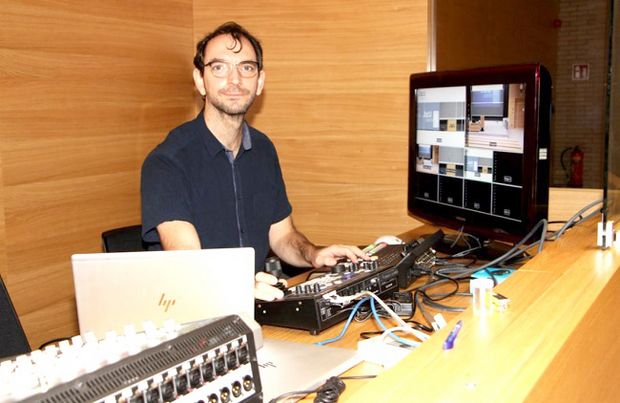How do you keep a university up and running during a pandemic? E-learning, of course. But that's easier said than done. This new series introduces the faces behind the scenes at the Department for Digital Education and Learning Services and talks about how they are mastering the current sitution.

Die IT hat viele Gesichter - und Abteilungen. Eine davon ist die Abteilung Digitale Lehr- und Lernservices. Hier stellen wir sie vor.
What is your area of responsibility?
Monika Straif: We manage e-learning systems, including the Moodle learning platform, the media equipment located in the seminar rooms and lecture halls, as well as the Zoom video conferencing system. Moodle supports educational purposes at the JKU, such as holding classes. Digital content can be used to supplement classroom lectures and can also be used to hold courses entirely online. Course instructors are also conducting online exams via Moodle. The media equipment allows course instructors to record their classes as well as stream lectures live. Our tasks include planning, operating and maintaining the classroom equipment and help support ongoing education at the JKU.
Our area of expertise is providing support services, be it in the classroom or helping students at home. We make sure Moodle and all of the other systems designed to create course videos are working the way they are supposed to. We also update equipment and manage Zoom (video conferencing software).
Has the coronavirus pandemic added to your workload (i.e. more requests for support services) or made things easier (i.e. more recognition for what you do)?
Monika Straif: We have certainly gotten a lot more recognition for our work since the pandemic started. However, the pandemic has exponentially increased the workload as the number of inquiries and requests are no longer spread out over the entire semester – they come in all at once. This was especially true when we switched from working on-site to working from home and online teaching. Introducing remote learning during the spring as well as enabling hybrid teaching during the fall has greatly increased our workload.
Are you working from home and how is that going?
Monika Straif: Last spring, the entire team worked from home and mastered the challenges we faced. During the current lockdown, half of the team is working on campus and the other half works from home. We rotate every 14 days. The areas of responsibility are split between the two groups so it works very well. We also hold our meetings via video conference. So, for us, working from home is going quite well.
What kind of questions do you address and what do people need to have ready in order to be helped?
Monika Straif: We always need the person’s name (personnel number) and information about the problem (when, where, etc). Depending on the issue, the course number is also very important. Describing the problem as detailed as possible (i.e. a screenshot) is also very helpful.
What are you contacted most about, even if it’s not your area at all?
Monika Straif: That ranges from workstation problems and laptops to legal issues and problems accessing the JKU account. We can’t, of course, help with that.
What do you do to work well as a team? Do you have any tips and advice?
Monika Straif: Fortunately, the team communicates well and we also hold regular team meetings.
The E-Learning Office
| Employees | 8 (plus 52 student employees) |
| Organized Zoom meetings per week | 3,600 (76,000 since March) |
| Uploaded videos since the start of the semester | 1,700 |
| Hybrid education | Equipped 54 rooms |








